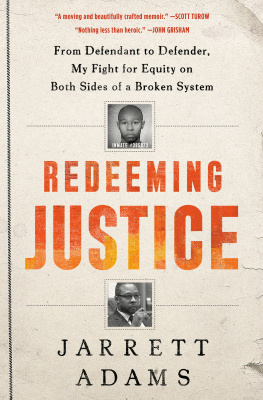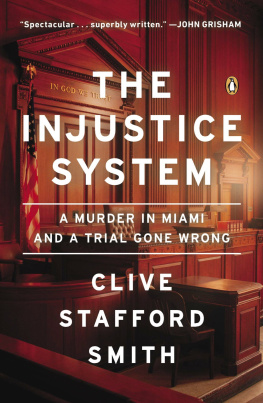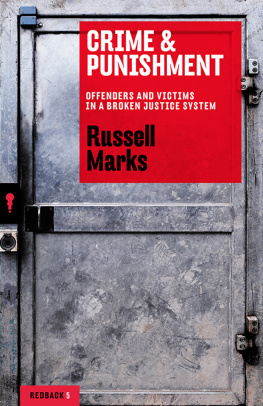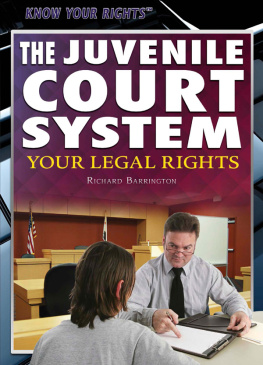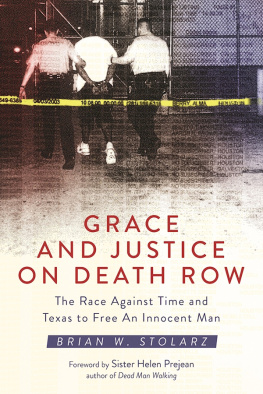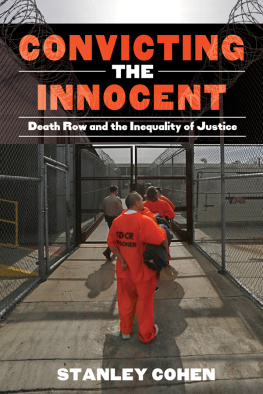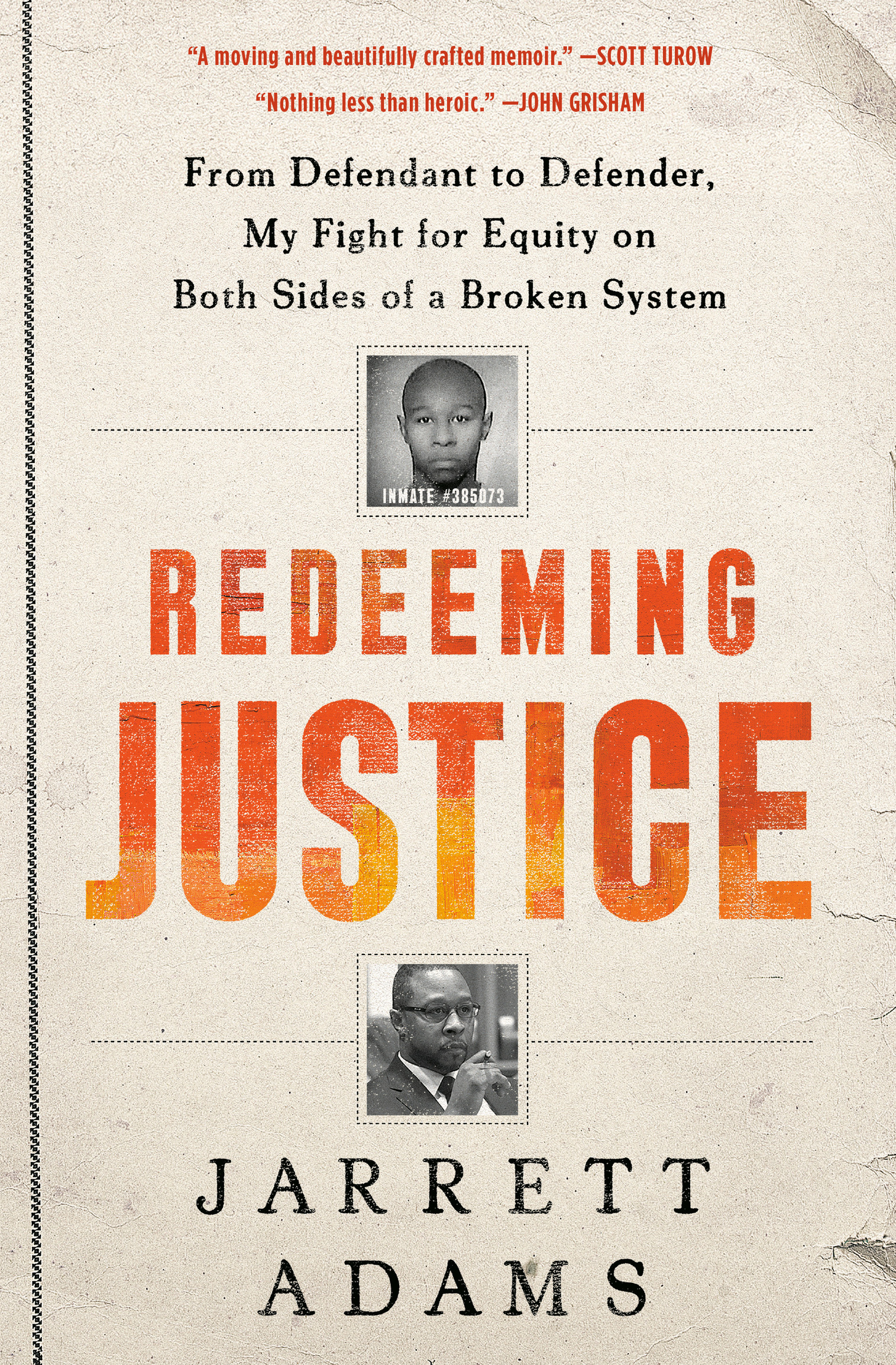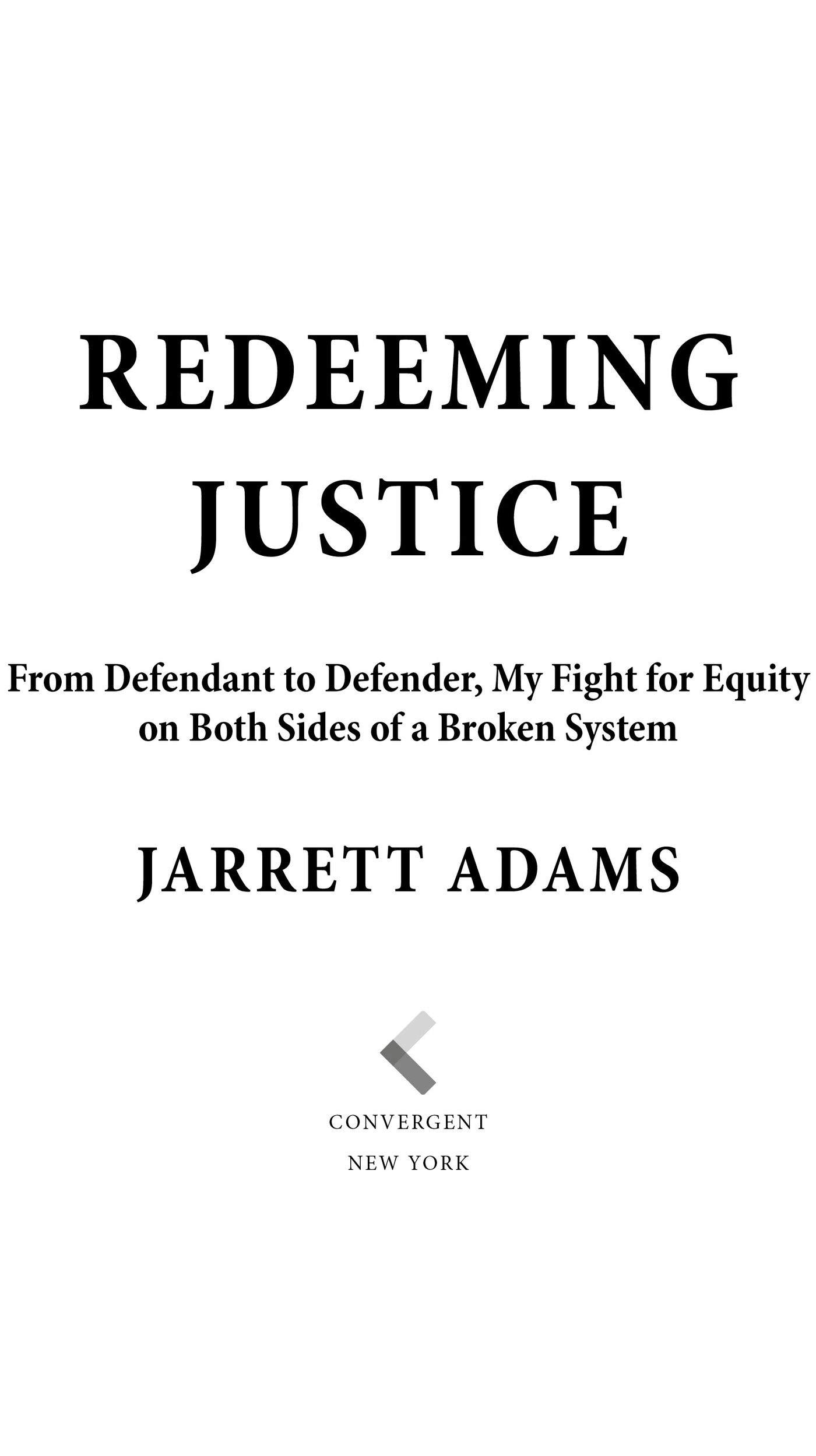Jarrett Adams - Redeeming Justice: From Defendant to Defender, My Fight for Equity on Both Sides of a Broken System
Here you can read online Jarrett Adams - Redeeming Justice: From Defendant to Defender, My Fight for Equity on Both Sides of a Broken System full text of the book (entire story) in english for free. Download pdf and epub, get meaning, cover and reviews about this ebook. year: 2021, publisher: The Crown Publishing Group, genre: Detective and thriller. Description of the work, (preface) as well as reviews are available. Best literature library LitArk.com created for fans of good reading and offers a wide selection of genres:
Romance novel
Science fiction
Adventure
Detective
Science
History
Home and family
Prose
Art
Politics
Computer
Non-fiction
Religion
Business
Children
Humor
Choose a favorite category and find really read worthwhile books. Enjoy immersion in the world of imagination, feel the emotions of the characters or learn something new for yourself, make an fascinating discovery.
- Book:Redeeming Justice: From Defendant to Defender, My Fight for Equity on Both Sides of a Broken System
- Author:
- Publisher:The Crown Publishing Group
- Genre:
- Year:2021
- Rating:4 / 5
- Favourites:Add to favourites
- Your mark:
Redeeming Justice: From Defendant to Defender, My Fight for Equity on Both Sides of a Broken System: summary, description and annotation
We offer to read an annotation, description, summary or preface (depends on what the author of the book "Redeeming Justice: From Defendant to Defender, My Fight for Equity on Both Sides of a Broken System" wrote himself). If you haven't found the necessary information about the book — write in the comments, we will try to find it.
A daring act of justified defiance.SHAKA SENGHOR
Nothing less than heroic.JOHN GRISHAM
He was seventeen when an all-white jury sentenced him to prison for a crime he didnt commit. Now a pioneering lawyer, he recalls the journey that led to his exonerationand inspired him to devote his life to fighting the many injustices in our legal system.
Seventeen years old and facing nearly thirty years behind bars, Jarrett Adams sought to figure out the why behind his fate. Sustained by his mother and aunts who brought him back from the edge of despair through letters of prayer and encouragement, Adams became obsessed with our legal system in all its damaged glory. After studying how his constitutional rights to effective counsel had been violated, he solicited the help of the Wisconsin Innocence Project, an organization that exonerates the wrongfully convicted, and won his release after nearly ten years in prison.
But the journey was far from over. Adams took the lessons he learned through his incarceration and worked his way through law school with the goal of helping those who, like himself, had faced our legal system at its worst. After earning his law degree, he worked with the New York Innocence Project, becoming the first exoneree ever hired by the nonprofit as a lawyer. In his first case with the Innocence Project, he argued before the same court that had convicted him a decade earlierand won.
In this illuminating story of hope and full-circle redemption, Adams draws on his life and the cases of his clients to show the racist tactics used to convict young men of color, the unique challenges facing exonerees once released, and how the lack of equal representation in our courts is a failure not only of empathy but of our collective ability to uncover the truth. Redeeming Justice is an unforgettable firsthand account of the limitsand possibilitiesof our countrys system of law.
Jarrett Adams: author's other books
Who wrote Redeeming Justice: From Defendant to Defender, My Fight for Equity on Both Sides of a Broken System? Find out the surname, the name of the author of the book and a list of all author's works by series.

